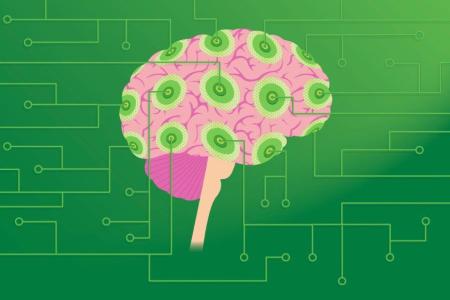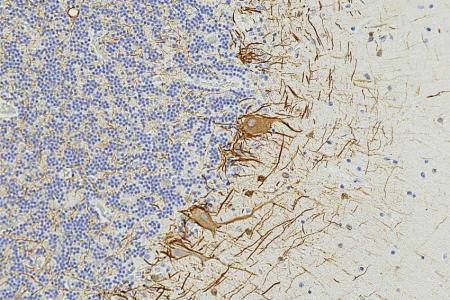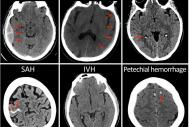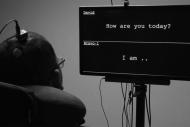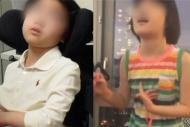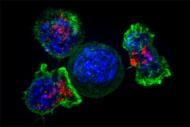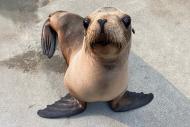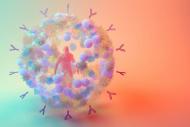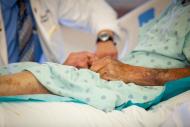Surprising Recoveries Months Later May Prompt Physicians to Delay Life-Support DiscussionsResearchers found that among the patients in a vegetative state, 1 in 4 “regained orientation” – meaning they knew who they were, their location and the date – within 12 months of their injury.
UCSF-Led Study Matches Brain Imaging with Prognosis, Showing Lingering Impairment for SomeCT scans for patients with concussion provide critical information about their risk for long-term impairment and potential to make a complete recovery – findings that underscore the need for physician follow-up.
Technology Could Lead to More Natural Communication for People Who Have Suffered Speech LossResearchers at UC San Francisco have successfully developed a “speech neuroprosthesis” that has enabled a man with severe paralysis to communicate in sentences, translating signals from his brain to the vocal tract directly into words that appear as text on a screen.
Patients with Parkinson’s, Alzheimer’s May Benefit from Novel Treatment Children with a devastating genetic disorder characterized by severe motor disability and developmental delay have experienced sometimes dramatic improvements in a gene therapy trial launched at UCSF Benioff Children’s Hospitals.
T cells – immune cells that patrol our bodies in search of trouble – have become a central focus for UC San Francisco scientists working on living cell therapies, an approach that views cells themselves as a form of medicine. “From my perspective there’s no more important system in the body than the immune system, especially T cells,” said Jeffrey Bluestone, PhD, an emeritus professor of medicine at the UCSF Diabetes Center and CEO of the T cell therapy company Sonoma Biotherapeutics. “T cells are potent, diverse and circulate in every tissue from your head to your toes. They play a
Cronutt was one sick sea lion before undergoing a groundbreaking surgery last fall. Today he's seizure-free and doing well.
Hidden autoimmunity may explain how the coronavirus wreaks such widespread and unpredictable harm.Hidden autoimmunity may explain how the coronavirus wreaks such widespread and unpredictable harm.
Cognitive behaviorial therapy for insomnia, the gold-standard intervention, also suggests benefits for well-being.
Insomnia is miserable, and lost sleep can harm our health. Now, researchers are seeing the promise of solutions in our genes.Insomnia is miserable, and lost sleep can harm our health. Now, researchers are seeing the promise of solutions in our genes.
Interventions Result in Shorter Hospital Stays, Reduced Readmissions, UCSF Study Shows UCSF researchers wanted to see if simple tweaks, like avoiding nighttime interruptions to promote sleep, nixing certain prescription drugs, and promoting exercise and social engagement, could decrease delirium in hospitalized older adults.

